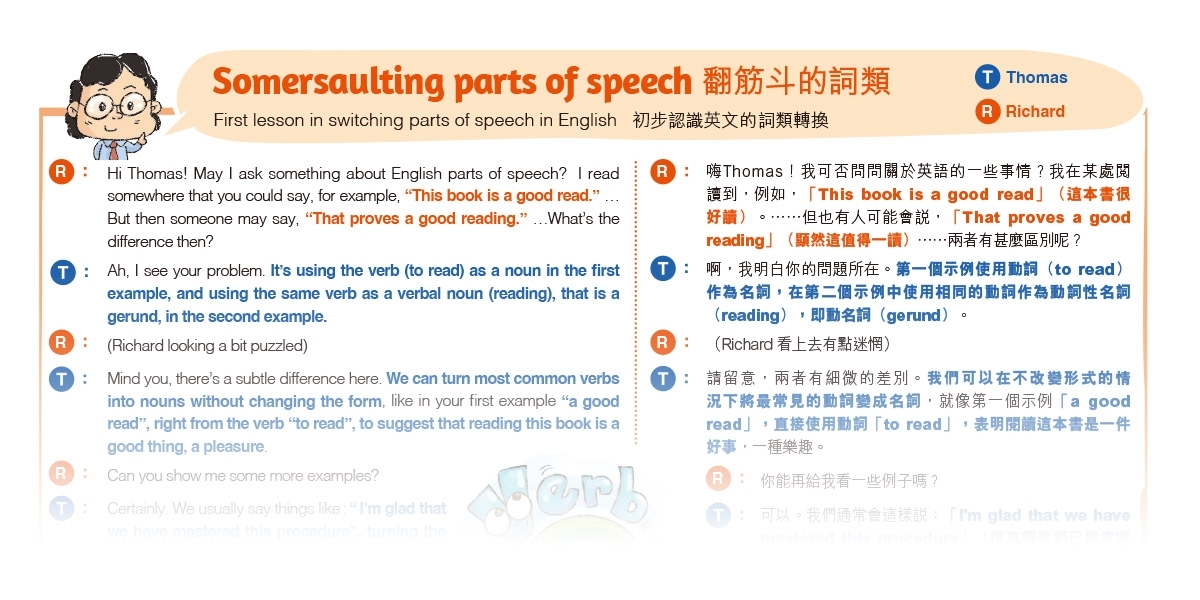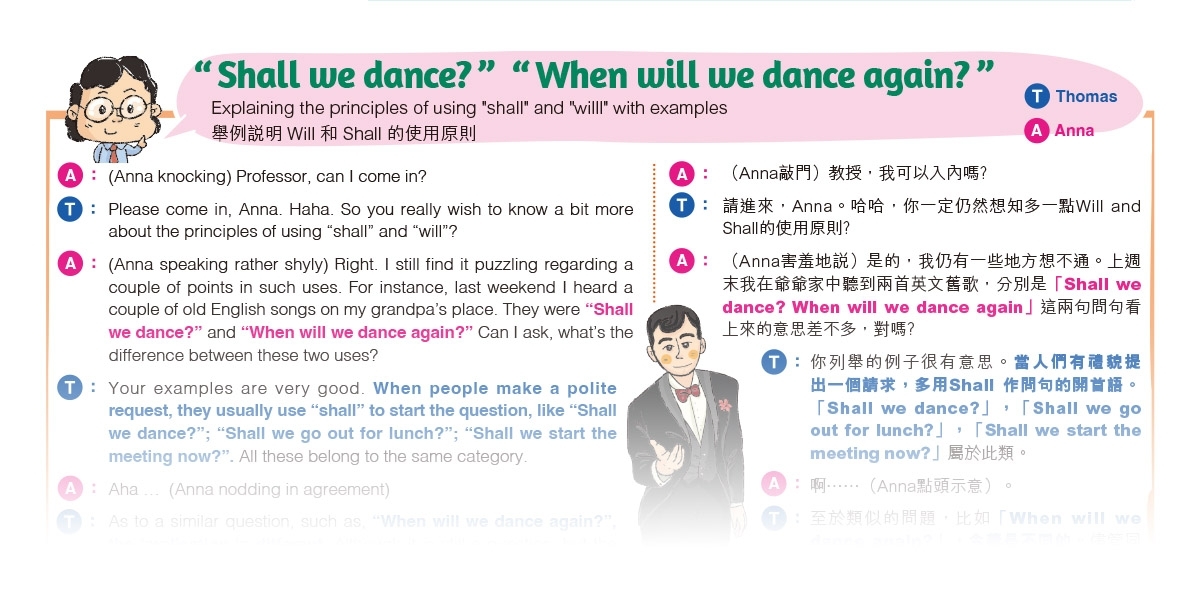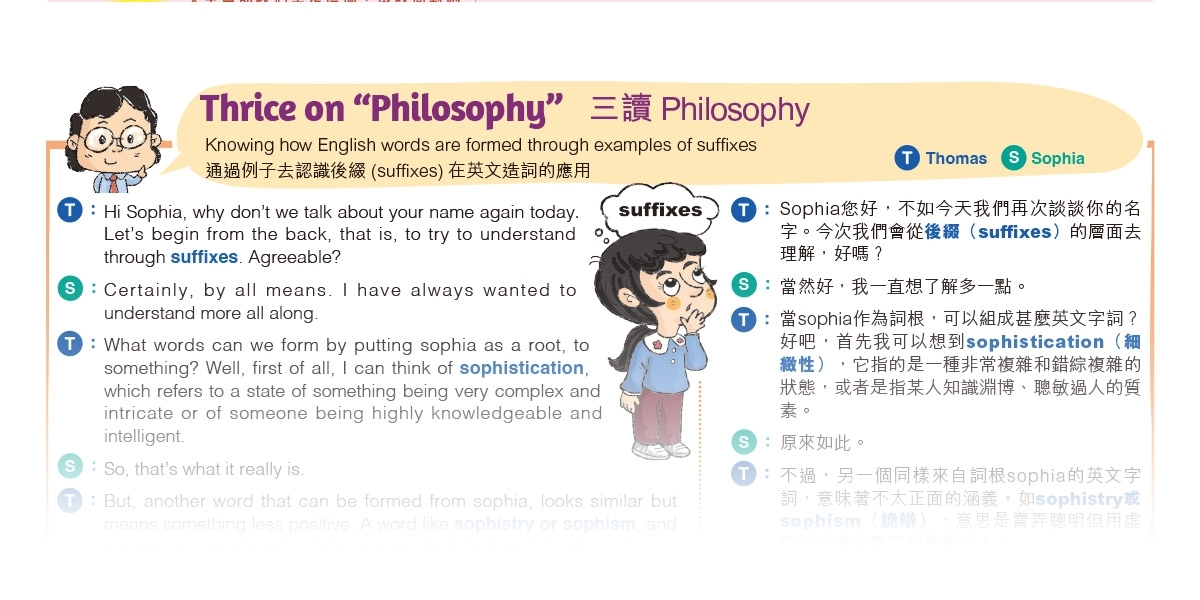昔日文章


Embrace the power of core value
2023.09.24
How good, how delightful it is for all to live together like brothers ! ( Psalm 133:1 )
Once upon a time, there was a mean man who wanted to end the world. He had a magic spell that made people not want to work. He smelled really bad, and the horrible smell made people not want to go outside.
One day, the mean man looked into a house and saw a happy family sitting inside, smiling. This made him very angry because they were not affected by his plan.
The mean man didn't know what to do next. He wanted to make the family sad, but they were strong and didn't let his evil plan get to them.
In the end, the love and happiness of the family showed that even in the face of evil, goodness and strength can win.
The story taken from CEO project 1.0 - Family (Level 1) Unit 7 The Evil Man Part 1
Message
Understand family is made up of husband and wife (father and mother) . Parents raise and teach children with God's words.
Action
Love your family with harmony and respect.
Glossary
Evil (adjective) morally bad, cruel, or very unpleasant 道德敗壞的;邪惡的
Magic spell (noun) incantation or curse 魔法, 魔咒
Horrible (adjective) very shocking and frightening 可怕的,令人震驚的


Learning English with Thomas
2023.05.25
Somersaulting parts of speech 翻筋斗的詞類
翻筋斗的詞類
First lesson in switching parts of speech in English 初步認識英文的詞類轉換
T:Thomas|R:Richard
R: Hi Thomas! May I ask something about English parts of speech? I read somewhere that you could say, for example, “This book is a good read.” … But then someone may say, “That proves a good reading.” …What’s the difference then?
T: Ah, I see your problem. It’s using the verb (to read) as a noun in the first example, and using the same verb as a verbal noun (reading), that is a gerund, in the second example.
R: (Richard looking a bit puzzled)
T: Mind you, there’s a subtle difference here. We can turn most common verbs into nouns without changing the form, like in your first example “a good read”, right from the verb “to read”, to suggest that reading this book is a good thing, a pleasure.
R: Can you show me some more examples?
T: Certainly. We usually say things like : “ I’m glad that we have mastered this procedure”, turning the noun into a verb again, or “Can I give you a lift in my car”, turning the verb “to lift” into a noun, meaning a free ride. This is called “somersaulting parts of speech”, and people say it was “invented” by Shakespeare!
R: That’s really eye-opening.
R: 嗨Thomas!我可否問問關於英語的一些事情?我在某處閱讀到,例如,「This book is a good read」(這本書很好讀)。……但也有人可能會說,「That proves a good reading」(顯然這值得一讀)……兩者有甚麼區別呢?
T: 啊,我明白你的問題所在。第一個示例使用動詞(to read) 作為名詞,在第二個示例中使用相同的動詞作為動詞性名詞(reading),即動名詞(gerund)。
R:(Richard 看上去有點迷惘)
T: 請留意,兩者有細微的差別。我們可以在不改變形式的情況下將最常見的動詞變成名詞,就像第一個示例「a good read」,直接使用動詞「to read」,表明閱讀這本書是一件好事,一種樂趣。
R: 你能再給我看一些例子嗎?
T: 可以。我們通常會這樣說:「I'm glad that we have mastered this procedure」(很高興我們已經掌握了這個程序),再次將名詞變成動詞,或者「Can I give you a lift in my car」(我可以開車送你一程嗎?),將動詞「to lift」變成名詞,意思是順道送你一程。在英文文法,這稱為「somersaulting」,據說由是莎士比亞發明的!
R: 這真是令人大開眼界。


Learning English with Thomas
2023.04.30
“ Shall we dance? ” “ When will we dance again? ”
Explaining the principles of using "shall" and "willl" with examples
舉例說明Will 和 Shall 的使用原則
T: Thomas, A: Anna
A: (Anna knocking) Professor, can I come in?
T: Please come in, Anna. Haha. So you really wish to know a bit more about the principles of using “shall” and “will”?
A: (Anna speaking rather shyly) Right. I still find it puzzling regarding a couple of points in such uses. For instance, last weekend I heard a couple of old English songs on my grandpa’s place. They were “Shall we dance?” and “When will we dance again?” Can I ask, what’s the difference between these two uses?
T: Your examples are very good. When people make a polite request, they usually use “shall” to start the question, like “Shall we dance?”; “Shall we go out for lunch?”; “Shall we start the meeting now?”. All these belong to the same category.
A: Aha … (Anna nodding in agreement)
T: As to a similar question, such as, “When will we dance again?”, the implication is different. Although it is still a question, but the point is that the asker is expressing clearly his or her intention of inviting the other party to dance. What is more, he or she is quite confident that the dance will materialize.
A: I see. There can be connotation about it in such uses. I can see that I still need to spend more time to learn English better. (Thomas smiling in place of speaking again)
A: (Anna敲門)教授,我可以入內嗎﹖
T: 請進來,Anna。哈哈,你一定仍然想知多一點Will and Shall的使用原則﹖
A: (Anna害羞地說)是的,我仍有一些地方想不通。上週末我在爺爺家中聽到兩首英文舊歌,分別是「Shall we dance? When will we dance again」這兩句問句看上來的意思差不多,對嗎﹖
T: 你列舉的例子很有意思。當人們有禮貌提出一個請求,多用Shall 作問句的開首語。「Shall we dance?」,「Shall we go out for lunch?」,「Shall we start the meeting now?」屬於此類。
A: 啊⋯⋯(Anna點頭示意)。
T: 至於類似的問題,比如「When will we dance again?」,含義是不同的。儘管同樣是問句,不過其重點想表明提問者想邀請對方再次共舞的意圖,且胸有成竹對方會答允其請求。
T: 原來是有弦外之音,看來我還要花多一點時間學好英文文法。(Thomas笑而不語)


Learning English with Thomas
2023.04.16
Thriceon“Philosophy”
三讀Philosophy
Knowing how English words are formed through examples of suffixes
通過例子去認識後綴 (suffixes) 在英文造詞的應用
T: Thomas, S: Sophia
T: Hi Sophia, why don’t we talk about your name again today. Let’s begin from the back, that is, to try to understand through suffixes. Agreeable?
S: Certainly, by all means. I have always wanted to understand more all along.
T: What words can we form by putting sophia as a root, to something? Well, first of all, I can think of sophistication, which refers to a state of something being very complex and intricate or of someone being highly knowledgeable and intelligent.
S: So, that’s what it really is.
T: But, another word that can be formed from sophia, looks similar but means something less positive. A word like sophistry or sophism, and it means to use clever but false arguments to fool and cheat people.
S: Oh, I don’t like the way they treated people.
T: Of course not. They are derived from the root sophia plus suffixes like−istry and−ists and−istication, and so on.S: Thanks Thomas Sir. You have taught me a lot. Can I buy you coffee?
T: Oh, that’s very gracious of you. I’d rather have tea, can I?
T: Sophia您好,不如今天我們再次談談你的名字。今次我們會從後綴(suffixes)的層面去理解,好嗎?
S: 當然好,我一直想了解多一點。
T: 當sophia作為詞根,可以組成甚麼英文字詞? 好吧,首先我可以想到sophistication(細緻性),它指的是一種非常複雜和錯綜複雜的狀態,或者是指某人知識淵博、聰敏過人的質素。
S: 原來如此。
T: 不過,另一個同樣來自詞根sophia的英文字詞,意味著不太正面的涵義。如sophistry或 sophism(詭辯),意思是賣弄聰明但用虛假的論據來愚弄和欺騙他人。
S: 噢,我不喜歡他們這樣待人。
T: 當然不能那樣。這些字詞組成都是從詞根 sophia加上不同的後綴而來,如-istry和-ists 和-istication等等。
S: 謝謝Thomas老師。你教懂了我很多。我可以請你喝咖啡嗎?
T: 噢,你太客氣了。我寧願喝茶,可以嗎?


